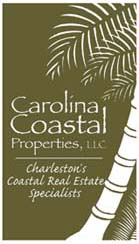|
What are the tax advantages in a 1031 exchange?
You can defer the payment of capital gains taxes associated with a real estate transaction. By selling one property and buying a higher-priced property, you 'roll' one property into another and no capital gains taxes are due at the end of the year.
Can I use my primary residence or second home in for a 1031 exchange?
No, only real estate property held for business or investment purposes can be used in a 1031 exchange, and both properties in the transaction must be of "like kind".
What is meant by "like-kind" property in a 1031 exchange?
Like-Kind refers to the type of property being exchanged. You can exchange any real estate investment for any other type of real estate investment -- for example, vacant land can be exchanged for rental property.
Are their time restrictions on a 1031 exchange transaction?
In a 1031 Exchange, you are required to "identify and designate" your new property on or before 45 days from the transfer of your old property and Closing must occur within 180 days of the closing of your old property, or before the due date for filing of your tax return for the year in which the old property closed, whichever is earlier. You can always get the full 180 days
to complete your Delayed Exchange if you timely request an extension for filing your tax return. While the 45 day identification period may seem short, you should remember that your search will typically begin from the date you current property goes under contract which should provide you with ample time to identify a replacement property.
Can I sell or buy multiple properties in a 1031 exchange?
Yes, you can exchange multiple smaller properties for a larger one and vice versa. The key is always trade up in value in order to maximize the amount of capital gains taxes that are deferred.
How can I defer the maximum amount of capital gains tax in a 1031 exchange?
The main rule is that the replacement property being purchased must be equal or greater in value to the relinquished property being sold. The net effect must be that the entire net proceeds from the sale must be used to purchase the replacement property.
Does one receive cost basis for the replacement property?
No, cost basis from the relinquished property is carried forward to the replacement property in a 1031 exchange.
What is a Qualified Intermediary and must I use one in a 1031 exchange?
The Qualified Intermediary (QI), also called an accomodator or facilitator, is a third-party that facilitates the transaction and is required by the IRS to qualify a 1031 tax exchange. The IRS does not allow your accountant, attorney, or escrow company to act as the QI.
Can I do multiple 1031 exchanges and avoid paying taxes altogether?
Yes, by continuing to sell and buy like-kind properties and following 1031 exchange rules, your estate when you die can avoid paying capital gains taxes.
Can I buy a property and before I sell one and still qualify for an exchange?
Yes. It is called a Reverse Exchange. A Reverse Exchange occurs ONLY when the New Property (Replacement Property) purchase must close before the Old Property (Relinquished Property) sale closes.
Reverse Exchanges were given belated IRS blessing nearly 13 years after issuance of the Deferred Exchange Regulations. Revenue Procedure 2000-37 effective September 15, 2000 sets out Safe Harbor Rules for a Reverse Exchange.
In a Reverse Exchange, the Facilitator Company will be required to take title to property to make the exchange work. The Facilitator Company essentially "warehouses" property until the Relinquished Property sale can close with a "real buyer". The Facilitator Company will be taking title to property to accomplish the Reverse Exchange.
Does it cost any more to do a 1031 Exchange vs a normal buy-sell?
Because you have added another party into the transaction, you will have some additional cost in the transaction. The QI will have a fee for their services and typically, the closing attorney fees will be increased somewhat.
If you are considering selling an investment property, one of our Property Specialists can help you explore your real estate investment options. Contact us today for a free consultation. |

